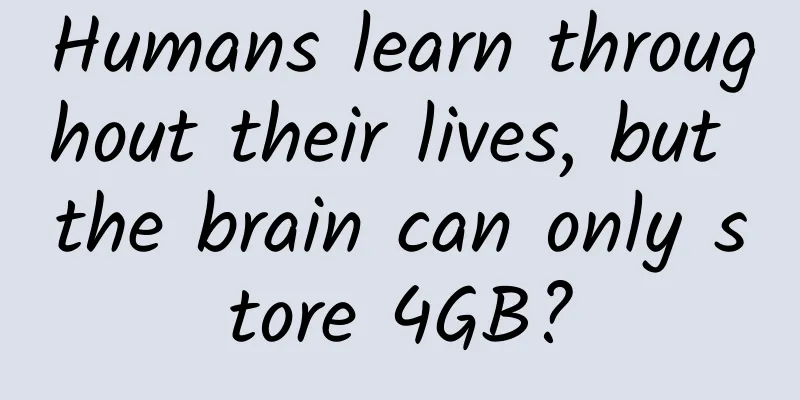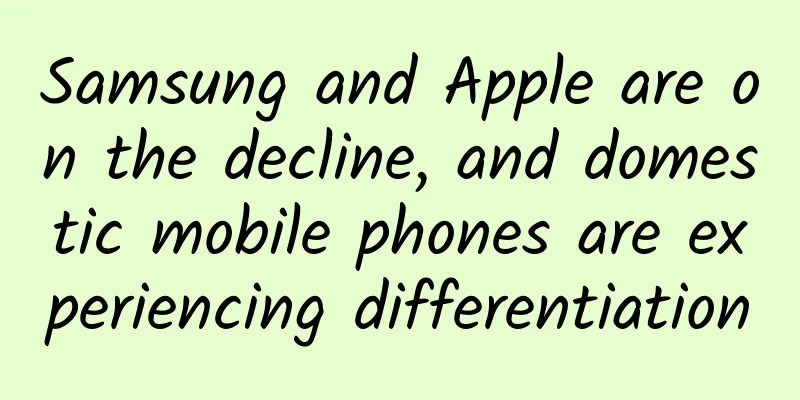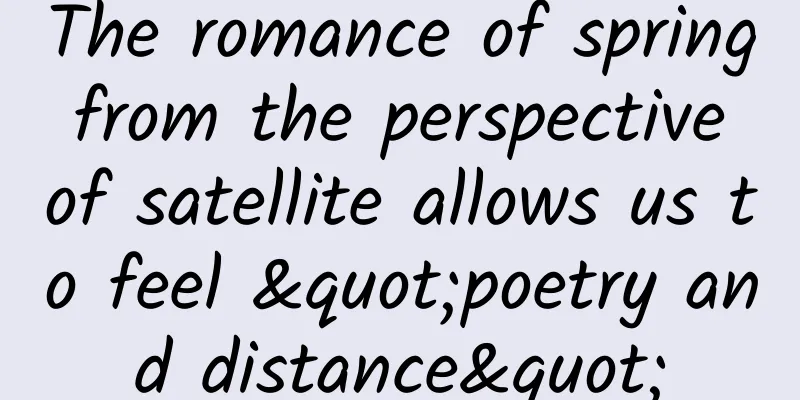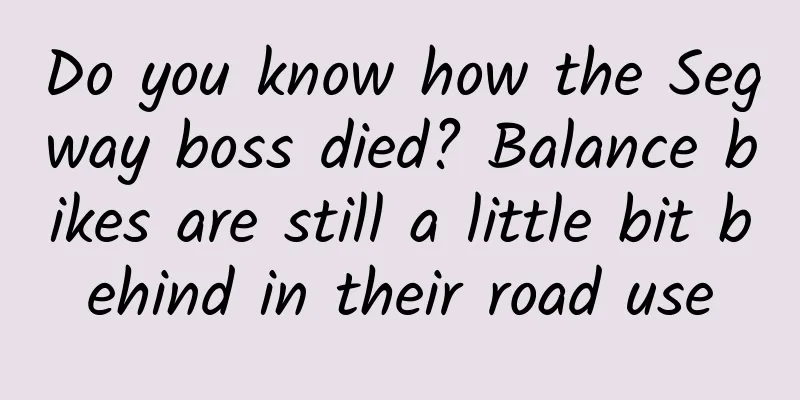Humans learn throughout their lives, but the brain can only store 4GB?

|
In life, we often hear an inspiring saying, "The human brain has unlimited potential." But have you really thought about the rationality and correctness of this statement? From a physical perspective, there are nearly 100 billion neurons in the human brain, and each neuron is connected to other neurons, forming an extremely complex information processing network. Even a genius recognized by all mankind as Einstein only used about 10% of his brain. From this, it can be inferred that there is nothing wrong with the above statement. Tightly connected neurons But at the same time, everyone seems to have overlooked one thing. If the brain is compared to a precision-running computer, the complex information network is like a "receiver" or "sensor", which can only drive the ability to receive and perceive information, but cannot interfere with the "CPU" and "memory card", that is, the problem of information processing and storage. So what will be the result if we take it into account? Recently, a perspective paper published in Neuron gave an answer. Researchers from the California Institute of Technology in the United States calculated and proposed a somewhat discouraging theory: Even if humans keep learning from birth to death, the final accumulated "knowledge storage" may be only 4 gigabytes (GB), not even as much as a small USB flash drive that you carry with you. But does this mean that humans are not as smart as they think? Obviously not. "Unlimited sensors with a single-core processor" First of all, we must understand that the human brain is the most difficult organ to explore and analyze clearly by modern scientific and technological means. Therefore, if we try to calculate the maximum amount of information that humans can store in their lifetime, we can only simulate several physical quantities. The key factor is the information processing speed of the brain. In this regard, the research team of Caltech chose to use typing and speaking as two daily activities as examples. The "amount of information" (entropy) of each character in English is about 1 bit. If a typist can type 120 words per minute (an average of 2 words per second), and each word consists of about 5 letters on average, then the typist's information processing speed is about 10 bits per second. Even verbal expression with a higher information rate, calculated at 160 words per minute, is only about 13 bits per second. Even if a professional e-sports player can type thousands of keys per minute, and assuming that he is in the most intense moment of the game, the information processing rate is only 16.7 bits per second. In summary, the average human thinking speed is about 10 bits per second. This means that even if a person studies 24 hours a day without interruption, never forgets any memory, and lives to be 100 years old, the knowledge he eventually stores will be less than 4GB. Brain storage However, some people question the scientific value of the 10-bit average because it is very counterintuitive. After all, humans have always boasted that they think very fast. Especially in today's information explosion society, many people claim that "watching TV shows at twice the speed is too slow"; or when they see that the network disk download speed is stuck at a few thousand bits per second (Kbps), they will probably be so angry that they want to smash the computer directly... In this comparison, it seems that humans are so "double-standard". Is this reasonable? Surprisingly, it makes sense. Although the human brain's information processing and storage capabilities are somewhat disappointing, the amazing thing is that our peripheral nervous system acquires information from the environment at an extremely fast rate of gigabits per second (Gbps) every day. For example, a single cone in the visual system can transmit information at a rate of 270 bits per second, and one eye alone has about 6 million cones. In other words, the binocular visual system alone receives information at a rate of 3.2 gigabits per second. In this way, the gap between the speed at which humans receive information and the speed at which they process information has been pulled to an astonishing 108:1. "Powerful sensors coupled with a single-core processor" may really be the fate of the human brain... Why does the central nervous system choose "slow work and fine work"? Then, a bigger mystery surfaced: How could humans stand out from the long evolution process and dominate the species with a single-core processor? Researchers pointed out that it is true, because this speed can already meet the needs of survival. After all, most of the environments faced by humans change relatively slowly, and this "slow" processing power has far exceeded the basic needs to cope with these changes. One thing that must be justified for the brain's central nervous system is that it is truly "slow and steady in its work". Generally speaking, the human nervous system can be roughly divided into two ways of treating information, one is parallel processing and the other is serial processing, which can be understood by referring to the parallel and series connection of circuits. The difference is also obvious, that is, the former works at the same time, while the latter can only do one thing at a time after finishing one. "Series" and "Parallel" Extending to the body, our peripheral nervous system relies on parallel methods to receive information. For example, the retina generates 1 million output signals per second, each of which is the result of local calculations of visual images by retinal neurons. These signals are then transmitted to the primary visual cortex for processing. However, the central nervous system processes information in a serial manner. When multiple tasks occur at the same time, the central nervous system will experience the so-called "psychological refractory period" and focus on only one of the tasks. This mechanism explains why humans can still focus on a specific conversation in a noisy environment. In addition, the human brain only selectively processes a small amount of information from sensory experience, and only this filtered information will enter our consciousness and be converted into memory. Researchers believe that the reason why the brain processes data at such a slow speed but requires such a large network of neurons is because we need to switch tasks frequently and integrate information between different neural circuits. For example, driving requires rapid switching between tasks such as looking at the road, looking at the dashboard, observing the rearview mirror, and checking the navigation, and different tasks involve different information processing modes. So why did humans evolve this serial processing mechanism? Scientists believe that this is related to the function of the nervous system in the early evolutionary process. The core function of the brain of the earliest organisms with a nervous system was to detect the concentration gradient of odor molecules to determine the direction of movement, so as to get closer to food or avoid predators. Since organisms can only be in one position at a time and choose one path, this architecture that only solves a single problem gradually evolved into the basis of today's central nervous system. In fact, if we observe the memory secrets of the "strongest brains", we can also find a similar mechanism, which is like Sherlock Holmes' "memory palace": they always use a familiar scene to place the required information in fragments along the way; and when they need to recall the memory, they will imagine themselves walking through the scene again and extract the fragments one by one. The researchers also proposed that human thinking can actually be regarded as a form of navigation in the space of abstract concepts. The "Memory Palace Technique" in Sherlock Holmes Finally, the scientists also "playfully" interpreted the human behavior of "seeking excitement" in life in the article, namely, "precisely because the speed at which humans process information still has a lot of redundancy compared to the slow changes in the natural environment, many people choose high-speed sports and fast-paced electronic games to challenge the brain's processing limits and gain pleasure." But at the same time, they also pointed out a cruel truth for those who are addicted to the Internet and even begin to alienate themselves from the real world: in the human-computer battle in video games, the machine is not limited by the processing speed of humans. In other words, if the operating speed of the machine is not limited, humans will never be able to compete with it. Therefore, if you are struggling with the vortex of competing with the computer, please remember that you are just challenging an enemy that is basically impossible to defeat and does not need to be defeated. So, instead of pursuing the speed limit, it is better to focus on using the effective information around you that is easy to understand efficiently and re-enter reality. |
<<: Why is the flamingo pink? Because it is greedy...
>>: When the soil is "shouting acid", how can organic fertilizer "turn the tide"
Recommend
I see the "Bawanghua" again! Why can't I get rid of this guy?
Recently, news of the "encirclement and supp...
What are the functions of the WeChat data statistics applet? How to create a data statistics applet?
Have you ever had a headache facing mountains of d...
Necessary infrastructure for private domain user operations!
Selection of target users and construction and ap...
Plants with flowers are not necessarily "flowering plants"
Produced by: Science Popularization China Author:...
Is BlackBerry also going to follow suit and launch a dual-curved screen phone?
At the Mobile World Congress (MWC) in Barcelona t...
With Maserati's entry-level SUV about to be launched, does Zotye have a new role model to imitate?
Luxury brands always seem to be on the right trac...
Is the awkward advertising placement really a panacea for brand marketing?
This is the best of times. For film and televisio...
"The father decides whether a boy or girl is a boy"? A mysterious journey into sex chromosomes
Why are some babies boys and some girls when they...
How did Uber become so popular? Let’s take a look at Uber’s marketing and branding strategy!
Uber is not just a means of transporting passenge...
APP promotion and operation: How did the first batch of users come?
When developing an APP, we must first understand ...
From amazing to declining: Two years of Google Glass
Apart from Google Glass, there may be no other cu...
How to make the sound better in Fat Snowman's "Sound Magic Class"
Do you envy others’ good voices? Want to open you...
The development trend of tools such as Alipay and Meitu
The following is an outline of this article: 1. W...
Eating the wrong snacks may harm your health! If you are hungry, why not eat these...
Expert in this article: Wang Silu, National Senio...
On the way to spring, I saved the "world" by the way... What should I pay attention to when preventing car fires?
Recently, Suichang County, Lishui City, Zhejiang ...









